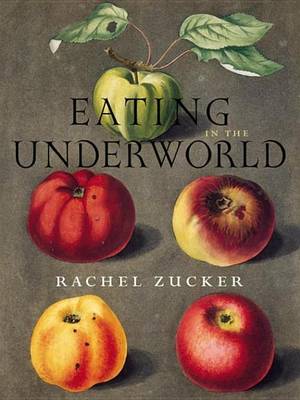Wesleyan Poetry
3 total works
Rachel Zucker's third book of poems is a darkly comic collection that looks unsparingly at the difficulties and compromises of married life. Formally innovative and blazingly direct, The Bad Wife Handbook cross-examines marriage, motherhood, monogamy, and writing itself. Rachel Zucker's upending of grammatical and syntactic expectations lends these poems an urgent richness and aesthetic complexity that mirrors the puzzles of real life. Candid, subversive, and genuinely moving, The Bad Wife Handbook is an important portrait of contemporary marriage and the writing life, of emotional connection and disconnection, of togetherness and aloneness.
In her second collection of poems, Rachel Zucker returns to a more autobiographical stance and writes about the particulars of marriage, pregnancy, childbirth, and motherhood-experiences that radically surprised her. But this is no simple reportage. With candor, humor, and compassion, Zucker discovers a new poetic territory: a landscape between story and fragment, a way of telling that is neither confessional nor intellectually detached. At the cliff-edge of narrative, a high place where language is the rope and falling the perception, Zucker's poems are unsentimental, true to the disjunctive experiences of loving, giving birth, raising a child, being lonely, being alive. A poetry of the body, of desire, about human frailty and strength, The Last Clear Narrative fills a void in the history of women writing about everyday experience and speaks to the nature of narrative itself.
In Rachel Zucker's re-imagining of the Greek myth, Persephone is a daughter struggling to become a woman. Unlike the classical portrait of a maiden kidnapped by a tyrant, Zucker's Persephone chooses to travel to the Underworld and assume her role as Hades' queen. Caught between worlds-light and dark, innocence and power, a mother's protection and a lover's appeal-Persephone describes the strangeness of the Underworld and the problems of transformation and transgression. The arrangement of Zucker's poems reflects Persephone's travels between the Underworld and the Surface. Both spare and lyrical, they are written as entries in Persephone's diary and as letters between Persephone, Demeter, and Hades. The language-strange, urgent, direct-is pulled and changed as Persephone journeys from one world to another revealing the struggle of unmaking and remaking the self.

